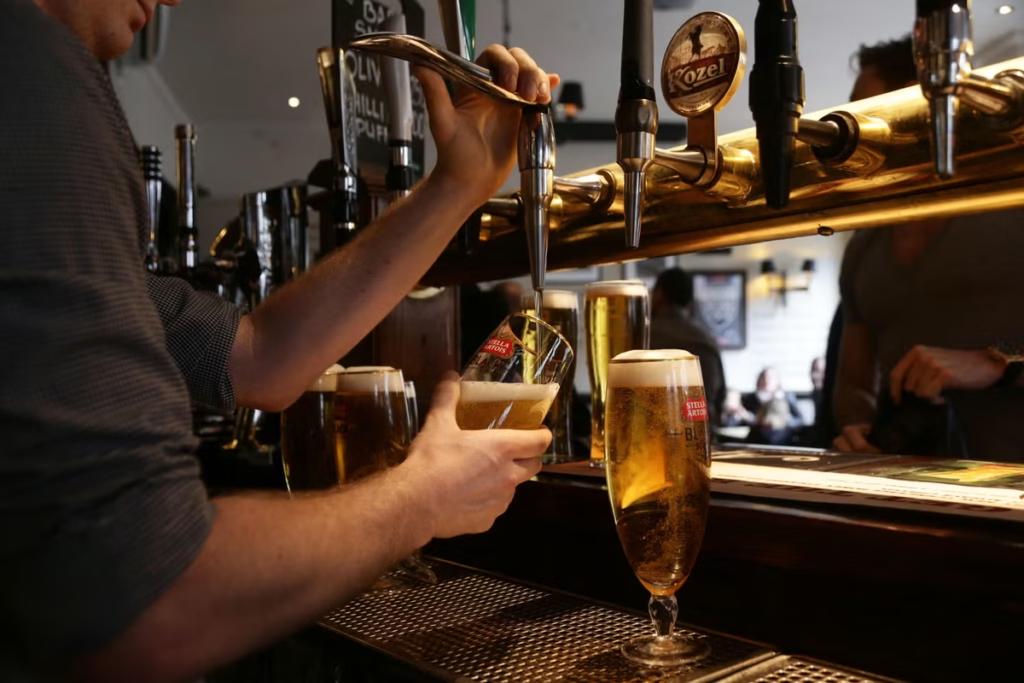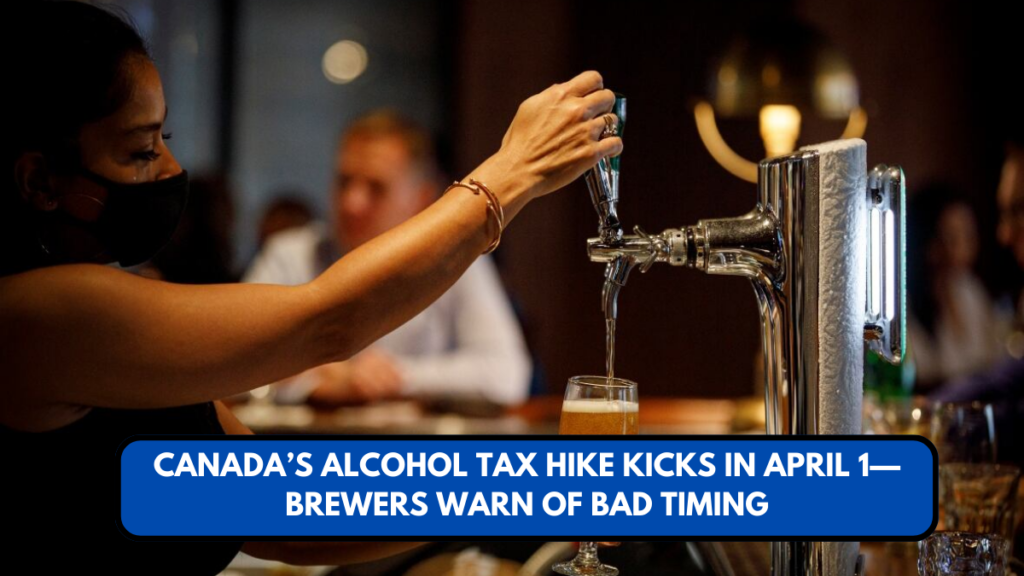Come April 1, 2025, Canadian consumers and alcohol producers will face a 2% increase in federal excise duties on beer, wine, and spirits. This hike is part of the country’s annual escalator tax on alcohol, which was introduced in 2017 and automatically adjusts duties in line with inflation.
The federal government has justified the tax increase as a necessary step in maintaining public revenue while keeping alcohol taxation in line with rising costs of living. However, industry representatives, particularly beer producers, argue that this isn’t the right time for such an adjustment, citing economic difficulties and declining beer sales.
What the Tax Increase Means?
The revised excise duty rates, as per the Canada Revenue Agency, will take effect on April 1, 2025. Below are the updated rates for beer packaged in Canada:
- Beer with 1.2% ABV or lower: $3.067 per hectolitre.
- Beer with ABV between 1.2% and 2.5%: $18.48 per hectolitre.
- Beer with more than 2.5% ABV: $36.95 per hectolitre.
For domestic brewers producing less than 75,000 hectolitres annually, reduced rates will apply:
- 0 to 2,000 hectolitres: $1.8475 per hectolitre.
- 2,001 to 5,000 hectolitres: $3.695 per hectolitre.
- 5,001 to 15,000 hectolitres: $7.390 per hectolitre.
- 15,001 to 50,000 hectolitres: $25.865 per hectolitre.
- 50,001 to 75,000 hectolitres: $31.408 per hectolitre.
For a full breakdown of the updated excise duty rates, visit the Canada Revenue Agency’s official notice.
Industry Pushback and Economic Concerns

The increase comes at a time when many Canadian breweries are struggling with rising costs of production, inflation, and declining beer consumption. Industry leaders argue that a tax hike could put additional pressure on breweries and distilleries already grappling with financial challenges.
“Beer sales have been declining in recent years, and small breweries in particular are feeling the pressure,” said a spokesperson from a national brewers’ association. “Increasing taxes at this point only makes it harder for local businesses to survive.”
According to the Canadian Taxpayers Federation, the tax hike is projected to cost taxpayers approximately $40.9 million in the 2025-26 fiscal year. The organization has criticized the automatic nature of the increase, arguing that it happens without direct parliamentary oversight and could be seen as an unfair burden on both consumers and businesses.
For more insights into the Canadian Taxpayers Federation’s stance, visit their official website.
Government’s Justification
While many in the alcohol industry oppose the increase, the federal government defends the policy as a necessary measure to ensure excise duties remain in line with inflation. Bill C-69, which was passed in June 2024, capped the annual excise duty increases at 2% for two additional years and provided some tax relief to small-scale brewers by halving the excise duty on the first 15,000 hectolitres brewed domestically during this period.
A spokesperson from the Department of Finance stated, “The excise duty escalator ensures that alcohol taxation keeps up with economic changes without requiring annual legislative amendments. The government remains committed to supporting small brewers while maintaining a responsible taxation structure.”
More details on Bill C-69 and its impact on alcohol taxation can be found at the Government of Canada’s official finance webpage.
Impact on Consumers

For consumers, this increase may result in higher prices for alcoholic beverages, though the exact impact will depend on producers and retailers. Many breweries and distilleries have not yet disclosed whether they will absorb the additional tax or pass it on to consumers.
“I wouldn’t be surprised if we see beer prices go up by a few cents per bottle or can,” said an industry analyst. “Larger producers might be able to absorb the costs, but smaller breweries are more likely to pass them along to consumers.”
What’s Next?
Despite pushback from the industry and advocacy groups, the government is moving forward with the scheduled increase. However, discussions around the escalator tax’s long-term impact continue, with some policymakers suggesting a review of automatic annual increases.
As the April 1 deadline approaches, Canadians will have to wait and see how the excise duty hike affects both prices and businesses in the alcohol industry.
For official updates on excise duty changes, visit the Canada Revenue Agency’s excise duty page.

Vikas is a seasoned finance writer with a keen eye for unraveling complex global financial systems. From government benefits to energy rebates and recruitment trends, he empowers readers with actionable insights and clarity. When he’s not crafting impactful articles, you can find him sharing her expertise on Social Media. You can connect with him via email at [email protected].







